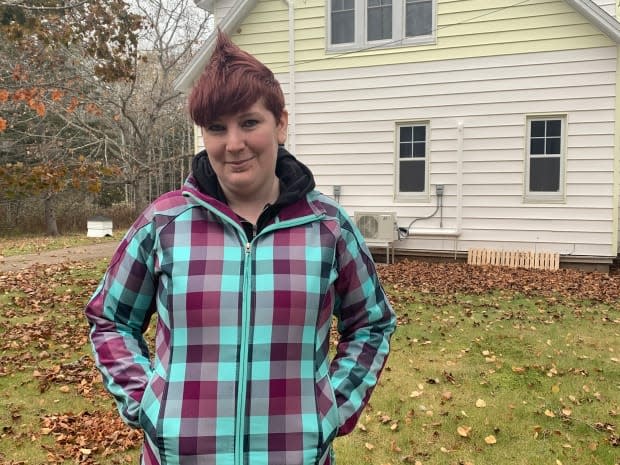New Brunswick homeowners flock to energy-savings program

Rhiannon McLaughlin says the first winter she spent in her Fredericton Junction home, she was too afraid to turn the baseboard heaters on.
"I'm on a budget. I can't afford a surprise $800 bill," said the 28-year-old, who works as a small crew supervisor at Marwood in Tracyville. Instead, she burned through five cords of wood, some days stoking the furnace every hour she was awake. On the coldest days, she wore thermal long johns, insulated work pants, two pairs of woolen socks and at least two sweaters. If she could have stuck her cats under her armpits, she would have done that, too. "There were definitely days when I came home from work and could see my breath in the house," she said

. Fortunately for the cats, McLaughlin decided to register for NB Power's Total Home Energy Savings Program. She spent $99 plus HST for a home energy audit. That's when she learned one of her biggest problems was her weepy, drafty basement so she followed the auditor's advice and had it sprayed with foam insulation.
She also had two heat pumps installed. Altogether, she says her upgrades cost about $10,500. She got back $2600 in rebates. Her energy consumption went from 318 gigajoules per year to 123 gigajoules per year. Her highest monthly bill since completing that work in October 2019, has been about $300, she says and she's no longer a slave to the woodstove, only using it when she wants to.

"Do you know how many times you handle a piece of wood if you burn wood," she said. "It's a lot and it's no fun." Overall, McLaughlin says she's thrilled with her cozy home and her savings. She thinks the previous owners paid about $380 per month, all year long, in equalized billing.
700 registrations a month
NB Power says the surge of interest in the program is probably linked to the boom in home renovations that's been triggered by the pandemic. About 700 New Brunswickers have been signing up per month, since the program restarted in June, after a brief suspension due to COVID-19. "When we reactivated the program, there was huge demand," said Diane Spencer, the residential program lead for NB Power's energy efficiency services. "Registration numbers increased 30 to 40 per cent compared to previous years."

Still, she says, the contractors have been keeping up. Participants who register online should be able to schedule an energy audit within a couple of weeks. That's when an advisor comes to the home and inspects the heating and cooling systems as well as the insulation. There's also a leakage test, or a blower door test, to determine how much heated air is escaping from the building. Incentives are designed to reward homeowners for doing more than one recommended project McLaughlin says she got more money back on her heat pumps and more money back on her insulation because she did both. NB Power says the average participant spends $6,000 on upgrades, earns $1,300 in rebates, and saves about $300 per year on their power bills.
Timing is right
The program gets enthusiastic approval from the Conservation Council of New Brunswick, especially since homeowners can benefit from an evaluation, no matter what source of fuel they use to heat their homes. "The federal funding allows the auditor to look at more than just electricity," says Louise Comeau, Director of Climate Change and Energy Policy. "This is a huge advance." She also thinks the program is booming because the pandemic has more people focused on their homes and making home improvements.

"There's no point in talking to somebody about efficiency when they're not in the mood or not planning to do a home renovation," said Comeau. "This is the moment. This is when you have people's attention.' She also agrees with the audit fee. She says $99 is about right. "You have to have a small fee, not too much so that you exclude people but enough that makes them be serious about that first engagement." "Otherwise, people won't take it seriously. "
Federal Funding
NB Power says it paid out $3 million in rebates last year. The money comes from the federal government. Ottawa launched its Low Carbon Economy Fund in 2017 to help provinces and territories reduce greenhouse gas emissions and create jobs in energy efficiency and sustainable energy. Of the $1.4 billion allocated to the provinces and territories, New Brunswick's share is about $50 million over five years and it all flows through NB Power as the delivery agent of energy efficiency programs to all New Brunswickers.


